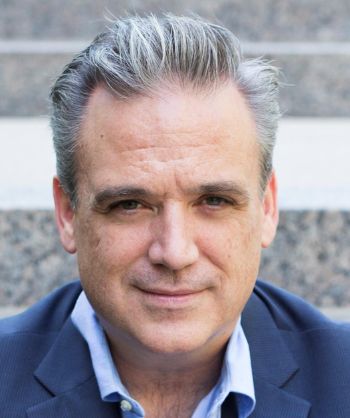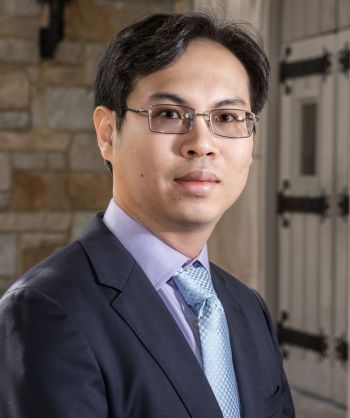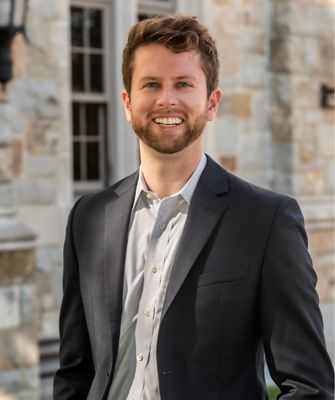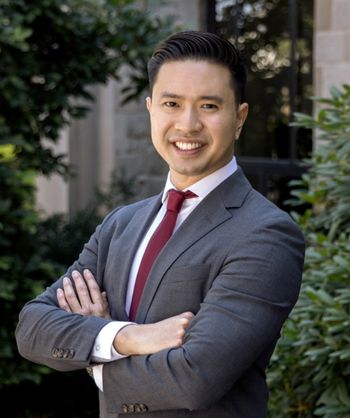Research, Media Impact, and Awards: Fall 2023
This sampling of recent faculty activity at the Boston College Carroll School of Management includes papers published in leading peer-reviewed journals. Among them: Academy of Management Journal, The Accounting Review, Administrative Science Quarterly, Information Systems Research, The Review of Financial Studies, and others. Also included in this roundup are recent media spotlights on Carroll School faculty research as well as awards and other distinctions.

Mark T. Bradshaw, Lian Fen Lee
Joseph F. Cotter Professor and Chairperson, Accounting
Associate Professor, Accounting
The Accounting Review
"An Examination of the Listing of Analyst Coverage on Corporate Websites"
Co-author:
Kyle Peterson, University of Oregon
"We examine firm decisions to provide listings of sell-side analyst coverage on corporate investor relations (IR) websites. These listings are related to three major areas of financial research—voluntary disclosure, investor relations, and analysts. Our hand-collected data permit cross-sectional and time-series analyses. Firms are more likely to have such listings when analysts are more important information intermediaries and when firms are directly involved in managing their IR websites. For firms with listings, the probability of an analyst being included on the listing is increasing in firm awareness of and familiarity with the analyst, how active and favorable the analyst is, and the analyst’s reputation. Additional analysis indicates similar results across self-hosting versus third-party hosting IR websites, with a notable exception that self-hosting firms exhibit a stronger preference for analysts who issue more favorable research about the firm. Decisions to add or drop analysts from listings reinforce the main results."
Cheng (Jason) Jiang
Assistant Professor of the Practice, Finance
Information Systems Research
"Seek and Ye Shall Find: An Empirical Examination of the Effects of Seeking Real-Time Feedback on Employee Performance Evaluations"
Co-authors:
Michael Rivera, Temple University
Subodha Kumar, Temple University
"Many companies use real-time feedback applications to increase employee engagement with their performance evaluation programs and disseminate the results. Yet beyond giving and receiving employee feedback, important dynamics such as feedback-seeking behavior and feedback rating are not well addressed in the literature. To fill this gap, we examine employee behavior related to two dimensions of real-time feedback: (i) seeking performance feedback from supervisors, peers, and direct reports and (ii) evaluating the helpfulness of received performance feedback. Specifically, we examine the effects of feedback-seeking and rate-the-feedback behaviors on in-kind evaluations."
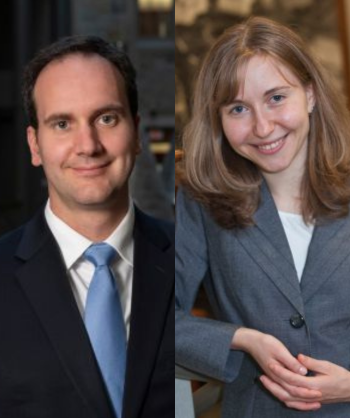
Andrey Malenko, Nadya Malenko
Professors of Finance
The Review of Financial Studies
“Advising the Management: A Theory of Shareholder Engagement"
Co-authors:
Ali Kahkbod, University of California Berkeley
Uliana Loginova, McKinsey & Company
"We study the effectiveness of shareholder engagement, that is, shareholders communicating their views to management. When shareholders and management have different beliefs, each shareholder engages more effectively when other shareholders engage as well. A limited shareholder base can thus prevent effective engagement. However, a limited shareholder base naturally arises under heterogeneous beliefs because investors who most disagree with management do not become shareholders. Passive funds, which own the firm regardless of their beliefs, can counteract these effects and improve engagement. When shareholders' and management's preferences are strongly misaligned, shareholders' engagement decisions become substitutes and the role of ownership structure declines."
Michael G. Pratt
O'Connor Family Professor, Management & Organization
Academy of Management Journal
“How Organizations Influence Interpersonal Trust Repair: The Case of a French Antiterrorist Unit"
Co-author:
Gabriel R. Sala, Northeastern University
"Through an inductive qualitative study of a French antiterrorist unit, we move beyond dyadic treatments of interpersonal trust repair to theorize a model that elucidates the organizational practices that can be used to guide members through the trust repair process. We also induce core mechanisms, such as establishing trust violation rules and providing trust templates, that explain why these organizational practices work to repair interpersonal trust. We suggest how this organizationally directed trust repair process can lead to full, partial, or failed trust repair for trust violators, with consequences on whether and how these violators may be reintegrated into the organization."
Vanessa Conzon
Assistant Professor, Management and Organization
Administrative Science Quarterly
"The Equality Policy Paradox: Gender Differences in How Managers Implement Gender Equality-Related Policies"
"Drawing on data from an ethnographic study of the introduction and implementation of a flexible work policy intended in part to improve gender equality at a STEM professional organization, I develop grounded theory on how managers’ gender shapes their implementation of such initiatives. I identify an equality policy paradox in which women managers, who openly support gender equality, are more likely than men managers to limit the policy."
Nan Liu
William S. McKiernan '78 Family Faculty Fellow, Associate Professor, Business Analytics
Operations Research (Forthcoming)
"Treatment Planning for Victims with Heterogeneous Time Sensitivities in Mass Casualty Incidents "
Co-authors:
Guohua Wan, Shanghai Jiao Tong University
Yunting Shi, Shanghai Jiao Tong University
"The current emergency response guidelines suggest giving priority of treatment to those victims whose initial health conditions are more critical. Although this makes intuitive sense, it does not consider potential deterioration of less critical victims. Deterioration may lead to longer treatment time and irrecoverable health damages, but could be avoided if these victims were to receive care in time. Informed by a unique timestamps dataset of surgeries operated in a field hospital set up in response to a large-scale earthquake, we develop scheduling models to aid treatment planning for mass casualty incidents (MCIs). A distinguishing feature of our modeling framework is to simultaneously consider victim health deterioration and wait-dependent service times in making decisions. We identify conditions under which victims with a less critical initial condition have higher or lower priority than their counterparts in an optimal schedule—the priority order depends on victim deterioration trajectories and the resource (i.e., treatment time) availability. A counterfactual analysis based on our data shows that adopting our model would significantly reduce the surgical makespan and the total numbers of overdue and deteriorated victims compared to using the then-implemented treatment plan; dynamic adjustment of treatment plans (if a second batch of victims arrive) and care coordination among surgical teams could further improve operational efficiency and health outcomes. By demonstrating the value of adopting data-driven approaches in MCI response, our research holds strong potentials to improve emergency response and to inform its policy making."
Benjamin Rogers
Assistant Professor, Management and Organization
Journal of Personality and Social Psychology
"Too Naïve to Lead: When Leaders Fall for Flattery."
Co-authors:
Övül Sezer, Cornell University
Nadav Klein, INSEAD
"Flattery is one of the oldest and most commonly used impression–management tactics in everyday life. Though it often brings benefits to the flatterer, less is known about how it affects the target. In the present research, we explore when and why being flattered can be costly for leaders—common targets of flattery—depending on how they respond to it. We suggest that leaders who are observed rewarding flatterers risk appearing naïve to others. Across seven studies and six supplementary studies (N = 4,612), we find evidence that leaders who grant favors to flatterers are often perceived to have naively “fallen for flattery,” which shapes observers’ impressions of the leaders and the organizations they represent. A first set of studies (Studies 1–4) detail the variety of factors that lead observers to conclude their leader has fallen for flattery and the resulting impacts to the leaders’ reputation and their organization (e.g., competence, warmth, commitment to the leader, organizational fairness). The second set of studies look at the contextual factors that impact what costs leaders pay for being perceived to have fallen for flattery, including the type of flattery (Study 5), who is harmed by the favor (Study 6), and the leader’s apparent awareness of the motives underlying flattery (Study 7). Whereas previous research highlights positive consequences of flattery for the flatterer, we find that flattery comes with costs for leaders and their organizations. We discuss theoretical and practical implications for leaders who are frequently flattered. "
Curtis Chan
Assistant Professor, Management & Organization
Academy of Management Journal (Accepted)
“A Middle Ground Between Professional Autonomy and Managerial Goals Amid Ambiguous Technological Pressures: Intra-Professional Segmentation Around Technology at a Finnish School"
Co-author:
Tomi Koljonen, University of Liverpool
"Managers often desire to see their organization adopt new technologies but depend on autonomous professionals to use such technologies in practice. In seeking technology adoption, organizations thus must find a middle ground between professional autonomy and managerial goals. Extant scholarship has examined such middle grounds but has focused on adoptions of specific technologies. But amidst broad technology adoption pressures—expectations on organizations lacking precise prescriptions, success criteria, and sanctions—novel middle-ground approaches might emerge. Our 16-month ethnography of a Finnish school indicates that intra-professional segmentation—specialization of work tasks within a professional community—can allow organizations to navigate technology adoption while balancing professional autonomy and managerial goals."
Alicia Munnell
Peter F. Drucker Chair in Management Sciences
Director of the Center for Retirement Research
Working Paper
"Why Do Late Boomers Have So Little Wealth and How Will Early Gen-Xers Fare?"
Co-authors:
Anqi Chen, Center for Retirement Research at Boston College
Laura D. Quimby, Center for Retirement Research at Boston College
"Due to changes in the retirement landscape in recent decades, Late Boomers (who are now nearing retirement) would be expected to have less wealth from traditional pensions, Social Security, and housing, but higher 401(k)/IRA assets compared to Mid Boomers at the same age. Strikingly, though, Late Boomers have seen a drop in their 401(k)/IRA assets. The questions are why is their 401(k)/IRA wealth lower and what do the patterns mean for younger cohorts."
Working Papers
1. “Wills, Wealth, and Race” with Jean-Pierre Aubry and Gal Wettstein
2. “What Are the Implications of Rising Debt for Older Americans?” with Anqi Chen and Siyan Liu
3. “How Will Employer Health Insurance Affect Wages and Social Security Finances?” with Anqi Chen and Diana Horvath
Issues in Brief
1. “How Did the Pandemic Affect Household Balance Sheets?” with Andrew G. Biggs and Anqi Chen
2. "Social Security’s Financial Outlook: The 2023 Update in Perspective”
3. “The National Retirement Risk Index: Version 2.0” with Yimeng Yin and Anqi Chen
4. “Medicare Finances: A 2023 Update” with Michael Wicklein
5. “How Well Do People Perceive Their Retirement Preparedness?” with Anqi Chen and Yimeng Yin
6.“Should Social Security Invest in Equities?” with Michael Wicklein
7. “What Happened to Late Boomers’ Retirement Wealth?” with Anqi Chen and Laura D. Quinby
8. “Wills, Wealth, and Race” with Jean-Pierre Aubry and Gal Wettstein
9. “What Are the Implications of Rising Debt for Older Americans?” with Anqi Chen and Siyan Liu
Miao Liu
Assistant Professor, Accounting
Northeastern U. D’Amore-McKim School of Business Research Paper No. 4480056
“Executives vs. Chatbots: Unmasking Insights through Human-AI Differences in Earnings Conference Q&A"
Co-authors:
John (Jinaqiu) Bai, Northeastern University
Nicole M. Boyson, Northeastern University
Yi Cao, George Mason University
Chi Wan, University of Massachusetts Boston
"A significant portion of information shared in earnings calls is conveyed through verbal communication by corporate managers. However, quantifying the extent of new information provided by managers poses challenges due to the unstructured nature of human language and the difficulty in gauging the market’s existing knowledge. In this study, we introduce a novel measure of information content (Human-AI Differences, HAID) by exploiting the discrepancy between answers to questions at earnings calls provided by corporate executives and those given by several context-preserving Large Language Models (LLM) such as ChatGPT, Google Bard, and an open source LLM. HAID strongly predicts stock liquidity, abnormal returns, number of analysts’ forecast revisions, analyst forecast accuracy following these calls, and propensity of managers to provide management guidance, consistent with HAID capturing new information conveyed by managers. Overall, our results highlight the importance of using LLM as a tool to help investors unveil the veiled – penetrating the information layers and unearthing hidden insights."
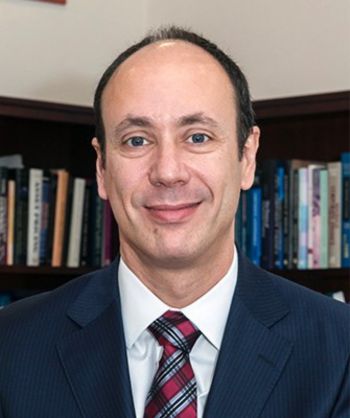
Rui Albuquerque’s talk on his research on corporate governance at the University of the Azores was picked up by RTP Açores, the local public TV station. Albuquerque, a finance professor, argued that corporate social responsibility can increase firms’ cash flows and reduce their risks.
At the height of the COVID-19 pandemic, grocery store workers were heralded as heroes. Not all of them believed the hype, according to research by Curtis Chan, assistant professor of management and organization, and colleagues featured on the Work In Progress website. But workers who struggled with the honorific did try to justify it and ended up being more committed to their jobs and customers.

Paternity leave is becoming increasingly common on Wall Street. In the Financial Times, Brad Harrington, executive director of the BC Center for Work & Family, noted that top investment banks now offer generous leave for dads—a landmark change, given typically stingy U.S. leave policies.
Mutual fund shareholders have traditionally let the investment companies whose mutual funds they own vote on their behalf in corporate elections. Lately, however, some companies are letting their fund shareholders decide whether they want to vote themselves. Offering that choice can have unintended consequences and doesn’t always improve investor welfare, say Nadya Malenko and Andrey Malenko, both professors of finance, in a writeup of their research on The Columbia Law School Blue Sky Blog. Nadya Malenko also addressed this issue in a Forbes commentary piece.
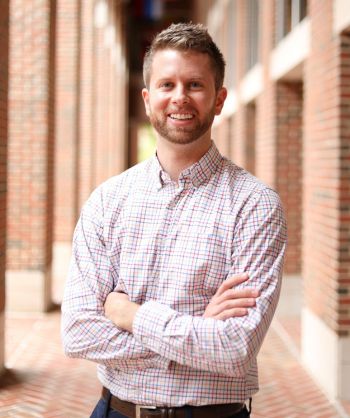
Do you see your life as a hero’s journey à la Odysseus or even Huck Finn? Doing so might make you more satisfied, Benjamin Rogers, assistant professor of management and organization, told Time. Rogers’s research, which was also featured in an op-ed he co-authored for Scientific American, shows that how people tell themselves their life stories shapes their feelings of self-worth.
Research by Mary Ellen Carter, the Joseph L. Sweeney Chair of accounting, was featured in a New York Times story on mandatory disclosures of the ratio of CEO pay to worker pay. Carter and colleagues find that employees ended up happier with their pay, because the disclosures include a firm’s median employee pay, which gives people a better sense of how they stack up.

In the Harvard Business Review, Vanessa Conzon cautioned that managers need to consider how diversity, equity, and inclusion policies will reverberate through their firms before implementing them. Fail to do that, and DEI policies can backfire, said Conzon, assistant professor of management and organization
Transient institutional investors—those like hedge funds that often don’t hold stocks for long—get a bad rap, according to research by Cheng (Jason) Jiang highlighted by The Columbia Law School Blue Sky Blog. Some scholars say they don’t contribute much to the companies whose stocks they own—they try to pocket quick gains and scram. Jiang, an assistant professor of the practice in finance, and colleagues found that was wrong: Transient investors can help monitor companies, which encourages investment in innovation.
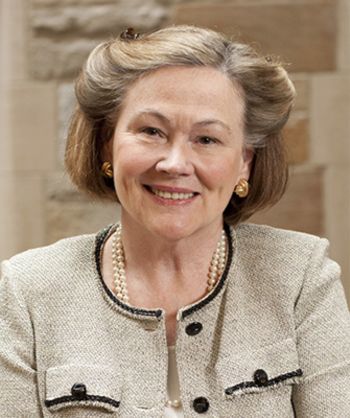
Alicia Munnell, director of the Boston College Center for Retirement Research and the Peter F. Drucker Chair in Management Sciences, weighed in on such diverse topics as whether NextEra workers should’ve invested in company stock, for Reuters, and whether people should wait till age 70 to collect Social Security benefits, for US News & World Report. Munnell’s research was also cited by CNBC in a story about small-business retirement plans.
Speaking on Bloomberg TV, Paul Romer, the Seidner University Professor, said economists didn’t think falling inflation amid steady economic growth was possible and now policymakers are feeling their way in the dark. Romer, a finance professor, added that the Federal Reserve would be crazy to keep raising interest rates, given softening inflation.
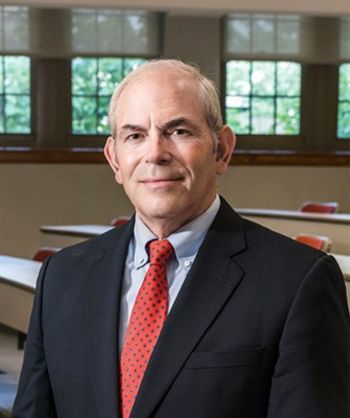
Ed Chazen, senior lecturer in business law and society, said in an interview with Northspyre that with the boom in working from home, multifamily housing should continue to thrive and industrial properties will likely muddle along but office buildings could face a crisis.
Research by Samuel Hartzmark, a finance professor, and a colleague on how ESG investing can be counterproductive was featured by both Freakonomics Radio and the Man Institute. Hartzmark, a Hillenbrand Family Faculty Fellow, and his colleague found that investing in environmental, social, and governance performers can deprive polluters of money needed to improve their operations.
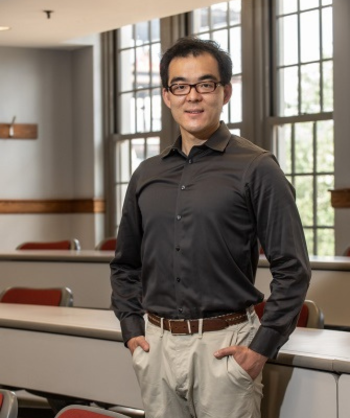
Maybe some CEOs should outsource their conference calls with stock analysts to chatbots. That’s one way to read research by Miao Liu, assistant professor of accounting, featured by Bloomberg and the Financial Times. Liu and colleagues found CEOs sometimes reveal too much in those calls. They compared what the CEOs said with what artificial intelligence predicted they would’ve said. CEOs who spoke unpredictably—who revealed new information—sometimes saw their companies’ stock prices drop.
Sam Ransbotham, professor of business analytics, offered an optimistic view of the use of artificial intelligence as a human resources tool in a story by Bloomberg Law. Ransbotham said AI might make workplaces fairer: “In the last two millennia, we’ve had humans in charge of human resources and honestly, we’re not doing a great job.” Ransbotham’s podcast, Me, Myself, and AI, was also highlighted as a must-listen by Business Insider.
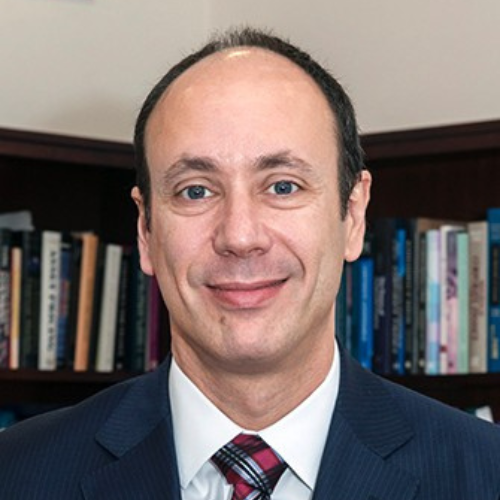
Rui Albuquerque, a finance professor, received the best paper award, for “Mutual Fund Trading and ESG Clientele,” at the Portuguese Finance Network Conference.
Samuel Hartzmark, a finance professor and a Hillenbrand Family Faculty Fellow, was one of two winners of the call for papers contest sponsored by the Brandes Center at UC San Diego’s Rady School of Management. Hartzmark and a colleague won for their paper titled “Counterproductive Sustainable Investing: The Impact Elasticity of Brown and Green Firms.”
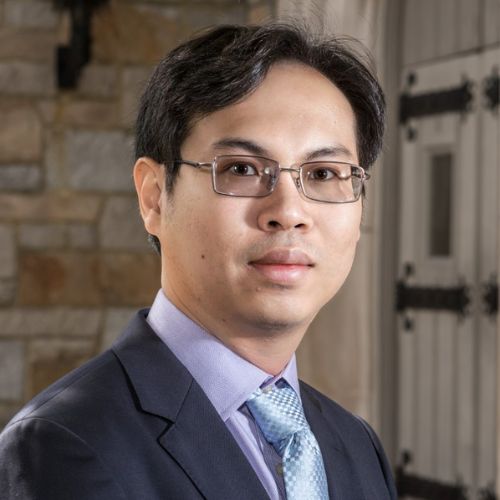
Nan Liu, associate professor of business analytics, has received two research awards from INFORMS. His co-authored paper, “Helping the Captive Audience: Advance Notice of Diagnostic Service for Hospital Inpatients,” earned the Service Science Best Cluster Paper, and his co-authored work, “Treatment Planning of Victims with Heterogeneous Time-Sensitivities in Mass-Casualty Incidents,” was a finalist for the Public Sector Operations Research Best Paper Award. Liu is also an associate editor of Operations Research for a second term.
Alicia Munnell, director of the Boston College Center for Retirement Research and the Peter F. Drucker Chair in Management Sciences, gave the keynote presentation, on her ideas for strengthening retirement security, at the National Tax Association’s 53rd Annual Spring Symposium.
Curtis Chan, assistant professor of management and organization, has been recognized by the Academy of Management Review as a top reviewer.

Poets & Quants has recognized Jon Kerbs, senior lecturer in marketing, as one of the favorite professors of the MBA class of 2023. The publication also lauded the negotiations class taught by Pilar Opazo, assistant professor of the practice in management and organization, as a favorite of 2023 MBAs.
Andrey Malenko, a finance professor, has been appointed both an associate editor at The Review of Financial Studies and a research member at the European Corporate Governance Institute. His paper, “Advising the Management: A Theory of Shareholder Engagement,” co-authored with Carroll School finance professor Nadya Malenko and others, was named a lead article and an editor’s choice selection by The Review of Financial Studies.

Gergana Nenkov, associate professor of marketing, was a member of the Boston College delegation to the United Nations 28th Conference of the Parties (COP28) Convention on Climate Change in Dubai, having been selected by Boston College’s Schiller Institute for Integrated Science and Society.
Thomas Wesner, director of the Summer Management Catalyst Program, has been recognized—twice—for teaching excellence. Wesner, associate professor of the practice in business law and society, received Boston College’s Alpha Sigma Nu Teacher of the Year Award and the Ever to Excel Rev. John R. Trzaska, S.J., Faculty Award.

Apple has named John Gallaugher an Apple Distinguished Educator for Higher Education. Gallaugher, associate professor of business analytics, was invited to present at Apple’s Distinguished Educator Summit for the Americas.
Two journals—the Journal of Accounting Research and Management Science—have recognized Lian Fen Lee, associate professor of accounting, for her excellence in refereeing and reviewing. Mark Bradshaw, the chairperson and Joseph F. Cotter professor of accounting, and Miao Liu, assistant professor of accounting, were similarly recognized as top referees by the Journal of Accounting Research.
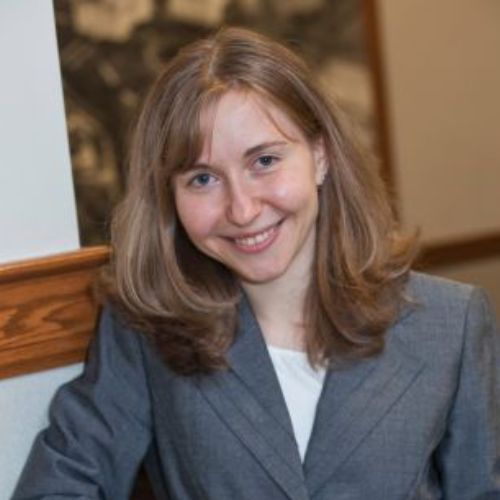
Nadya Malenko has become an National Bureau Economic Research research associate for corporate finance. Malenko, a finance professor, also received the referee of the year award from The Review of Financial Studies.
Linda Court Salisbury received the social impact award at the American Marketing Association’s Marketing and Public Policy Conference. Salisbury, associate professor of marketing, was recognized for co-organizing the best session incorporating social impact partners, bringing together both academics and policy makers.



